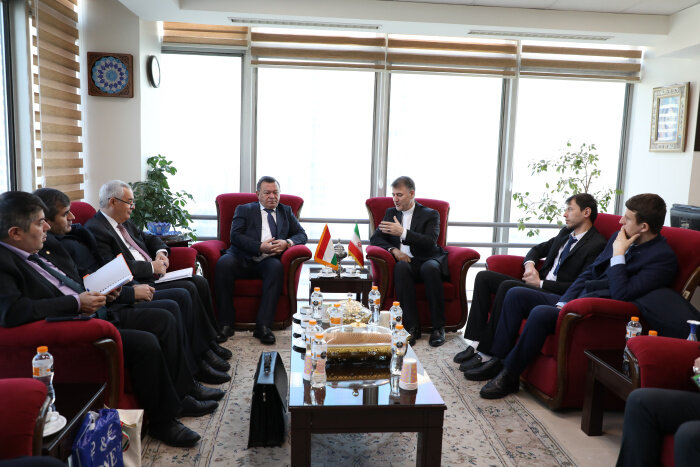Tehran, Dushanbe call for enhanced scientific co-op

TEHRAN – The Iranian deputy science minister and the president of Tajikistan’s Academy of Sciences held a meeting here on Tuesday, discussing ways to boost relations in the field of science and research.
Zohidi Nizomiddin Shamsiddinzoda, the ambassador extraordinary and plenipotentiary of the Republic of Tajikistan to the Islamic Republic of Iran, also attended the meeting, IRNA reported.
The two sides emphasized the need to develop scientific and technological cooperation by forming a joint committee in the near future.
Vahid Haddadi-Asl, the Iranian official, referred to common religion and language and geographical proximity as factors that can be effective in deepening the cooperation between the two countries, saying that the past relations between the two countries have been in line with cooperation and friendship.
The Exchange of academic staff members, cooperation of academic staff members in scientific projects, and participation in scientific seminars of the two countries should be strengthened, he highlighted.
The Tajik official, for his part, pointed out that Tajikistan is interested in cooperating with Iran, saying: “By exchanging the scientific achievements of the two countries, we can further help the development of the two countries.”
“We are ready for the participation of Iranian professors in scientific conferences of Tajikistan,” the president of the Academy of Sciences of Tajikistan added.
In July 2022, Peyman Salehi, the deputy science minister, said despite U.S. sanctions, the international activities of Iranian scientists have increased year by year, so that more than 35 percent of Iranian articles in Scopus have been multi-national projects.
He made the remarks at the COMSTECH (the Ministerial Standing Committee on Scientific and Technological Cooperation of the Organization of Islamic Cooperation) ceremony.
Science diplomacy is the use of scientific collaborations among nations to address common problems and build constructive international partnerships.
In 2021, Iranian scientists published more than 77,000 scientific articles in the Scopus database, so that, Iran has been ranked 15th in science production, he said, IRNA reported.
The country also ranked 15th and 16th in the world in terms of scientific references, he added.
Pointing to the history of Iran's scientific activities in the past two decades, Salehi said that Iran ranked 56th in science production in 1996 and ranked 15th in 2021. Accordingly, we are leading the region in science production.
Out of a total of 77,000 articles published by Iranian scientists in the Scopus database last year, 35.7 percent were related to international joint activities. Despite the sanctions, the amount of joint scientific activities of Iranian researchers has increased every year.
Iranian scientists are not limited by geographical and political borders, and apart from multi-national projects, the increase in Iranian researchers’ citations also proves this issue.
Referring to research centers, institutes, and science and technology hubs, he highlighted that in the past years, with the establishment of 240 innovation centers, as well as 49 science and technology parks, we have launched a complete roadmap to transform science into technology.
MG
